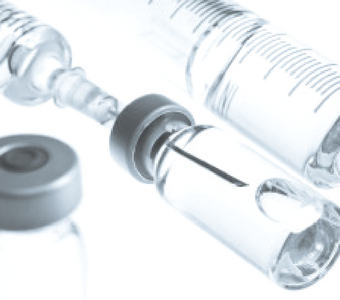Nektar Therapeutics (NASDAQ:NKTR) hosted a conference call Monday morning, highlighting the successful results from two Phase III trials and one safety extension study for Naloxegol, the company’s treatment for opioid induced constipation (OIC) in patients taking chronic pain killers for non-cancer related pain. Naloxegol is partnered with AstraZeneca (NYSE:AZN) and is a key driver of the NKTR story, estimated to represent about 25%-30% of Wall Street analysts’ long-term price targets. The three trials that reported out include: KODIAC-04, KODIAC -05, and KODIAC -07. KODIAC-04 and -05 are pivotal Phase III 12-week efficacy and safety trials, while KODIAC-07 is the 12-week safety extension of KODIAC-04. Both KODIAC-04 and KODIAC-05 evaluated two doses of Naloxegol (12.5mg and 25mg) administered once-daily. The primary endpoint in both trials was the percentage of OIC responders vs. placebo over 12 weeks of treatment. In the trials, a responder was defined as having at least three spontaneous bowel movements (SBMs) per week, with at least one SBM per week increase over baseline for at least nine out of 12 weeks, and at least three of the last four weeks. For statistical significance to be achieved in each trial, at lease one of the two Naloxegol doses needed to achieve a p-value <0.025 vs. placebo. These are high hurdles for success, and importantly, in the KODIAC-04 trial, both Naloxegol doses demonstrated statistically significant results for the primary endpoint (P-values of 0.015 and 0.001 for the 12.5mg and 25mg doses, respectively). In KODIAC-05, Naloxegol 25mg achieved statistical significance for the primary endpoint (P-value of 0.021). According to the company, the 25mg dose remains the target dose, and is key in the long-term safety extension studies. Safety data for both trials indicate that Naloxegol is generally well-tolerated with common adverse events (AEs) including bowel pain and nausea, which are expected side effects in this treatment area. Importantly, the company noted on its conference call that it saw no cardiovascular (CV) risk signals associated with Naloxegol in the trials. CV events in the trials were low overall, and an analysis by a third party concluded that Naloxegol treatment was not a cause for these events.
While these safety and efficacy results support potential approval of the drug, some analysts remain skeptical on treatments for OIC, noting that the FDA has increased its focus on CV safety for potential OIC therapies. Monday morning, brokerage firm Jeffries downgraded shares of NKTR (from Outperform to Neutral), citing new disclosures from competitors Salix Pharmaceuticals (NASDAQ:SLXP) and Progenics Pharmaceuticals (NASDAQ:PGNX), which together are developing their drug, Relistor for OIC. The new disclosure cites that Relistor may be required to undergo a very large well-controlled study on CV safety prior to approval, based on information in the complete response letter (CRL) issued by FDA for Relistor. Notably, NKTR added a new risk disclosure in its recent 10Q regarding regulatory uncertainty due to the potential for CV risk, raising a potential red flag for Naloxegol. Analysts supporting NKTR note that the Phase III program for Naloxegol is the most comprehensive in the category, with >2,000 patients being evaluated in pivotal trials and long-term safety studies.
Driven by major pharmaceutical company AstraZeneca, the Phase III program was designed from the start to evaluate treatment with Naloxegol in a chronic use setting. Data announced from the KODIAC-07 safety extension study should calm investors today, as NKTR notes that the occurrence of adverse events (AEs) and serious adverse events (SAEs) was lower than in KODIAC-04 and -05, indicating that the treatment may actually become better tolerated over time. Again, the company’s comments on its conference call that a third party concluded that there was no CV risk associated with the treatment, should also give investors confidence in the potential approval of Naloxegol. Notably, enrolment is complete for the KODIAC-08 trial, an open-label, 1,200 patient, randomized, 52-week long-term safety study, and the company and its partner could announce results in 2Q 2013. It appears that AZN was clearly anticipating FDA scrutiny on long-term safety, and the KODIAC-08 trial should satisfy FDA’s desire to see a large, long-term, safety database for the drug.
Globally, approximately 40%-50% of patients (28-35 million people) taking opioids for long-term pain develop constipation, but only about half of those people are alleviated of their symptoms with current over-the-counter (OTC) and prescription laxatives. Hence, the opportunity for a new treatment could be huge. Once FDA accepts the NDA for Naloxegel, NKTR will earn a $95M milestone payment from AZN, and the company is also entitled to substantial sales milestones and royalties on sales of the drug, if approved. NKTR also reported today that it expects to end 2012 with ~$300M in cash and cash equivalents, indicating that the company is well capitalized to advance its business plan and broad pipeline of product candidates. Expect shares of NKTR to trade up this morning and remain strong today.



